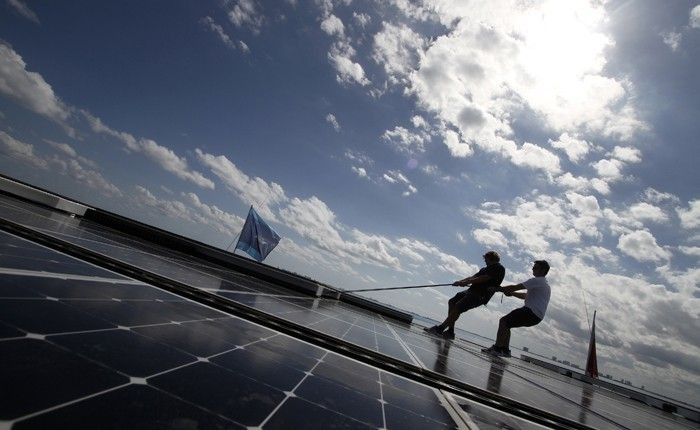'Climategate' emails undermined belief in global warming among weathercasters: study

'Climategate' - the unauthorized release in late 2009 of stolen e-mails - undermined many weathercasters’ confidence in the conclusions of climate science, at least temporarily, says a new study.
The Climategate email controversy began in November 2009 when vast number of emails from the University of East Anglia's Climatic Research Unit were made public. Investigations of the emails concluded no scientific misconduct had occurred and nothing in the emails should cause doubts about the fact which show that global warming is occurring.
A large majority of the meteorologists surveyed by Washington-based George Mason University indicated they had heard of Climategate, and nearly all followed the story at least a little. Among the respondents who indicated that they had followed the story,
42 percent indicated the story made them somewhat or much more skeptical that global warming is occurring.
According to George Mason University researchers, these results stand in stark contrast to the findings of several investigations of the emails.
The study also found that the doubts were most pronounced among politically conservative weathercasters and those who either do not believe in global warming or do not yet know. Further, the study showed that men were more likely than their female counterparts to say that Climategate made them doubt that global warming was happening.
Our study shows that TV weathercasters – like most people – are motivated consumers of information in that their beliefs influence what information they choose to see, how they evaluate information, and the conclusions they draw from it, says Ed Maibach, one of the researchers.
Our research here is based on the premise that weathercasters, if given the opportunity and resources, can become an important source of climate change education for a broad cross section of Americans, says Maibach.
The research team hopes to answer key research questions about how to help television meteorologists nationwide become an effective source of informal science education about climate change.
© Copyright IBTimes 2024. All rights reserved.





















